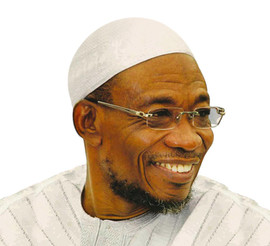
KEYNOTE ADDRESS DELIVERED BY THE GOVERNOR OF THE STATE OF OSUN, OGBENI RAUF AREGBESOLA, AT THE SECOND ANNUAL NATIONAL CONVENTION OF THE MUSLIM PUBLIC AFFAIRS CENTRE (MPAC), NIGERIA, HELD AT THE WATER PARKS EVENTS CENTRE, IKEJA, LAGOS, ON SATURDAY DECEMBER 1, 2012
Protocols,
PEACE IS POSSIBLE!
As-salaam alaykum wa rahmatullah wa barakatuh. May the peace, mercy and blessings of Allah shine upon us all.
It gives me great pleasure to be here today on this momentous occasion. It is gratifying that your organisation, Muslim Public Affairs Centre, Nigeria, has chosen to promote the cause of peace and peaceful co-existence in Nigeria and beyond. I find the theme of this Convention – Towards a Peaceful Co-existence – timely and reassuring. This becomes all the more significant at this time when inter-faith relations in Nigeria and indeed around the world are witnessing an uneasy turn.
Let me start by stating clearly my belief that in spite of all the multi-faceted challenges that confront our common existence in Nigeria and the world at large, PEACE IS POSSIBLE. Peace is possible if anchored on mutual respect. Peaceful co-existence is possible if human relationship were not impelled by fear but mutual understanding. Peace is possible if we all acknowledged that, although we are fallible as humans, yet we can work towards perfection. Peaceful co-existence is possible as long as we recognise the good in others and keep working at our own shortcomings. In any part of the world, peace is possible if we believed that Allah, the God of all of humankind, is just and wise in creating us as diverse peoples. As such, hate is an affront on God’s wisdom; oppression debases God’s people; while wanton and unjust killings annul God’s work.
It is a fact that our country is multi-ethnic and multi-religious. Ordinarily, this should be a blessing. History teaches us that properly-managed diversity strengthens a nation or an organization. Diversity makes available to a nation an abundance of talents, endowments and resources as diverse and numerous as the human groups that make it up. For instance, Nigeria is one of the blessed nations in the world that are endowed with diverse peoples, societies, tongues and religions. Even within a given group in the country, diversity exists. If this diversity is a creation of God, then how could it possibly be against God’s plan and purpose for us?
Peace is the Essence of Islam
Islam is a religion and a way of life. As a general term, Islam shares the same root with salaam (peace). In a technical sense, Islam implies submission, willing submission, to the Will of Allah. It is an unforced submission. Submission in Islam must be conscious, willing and peaceful. Nobody must be coerced to submit to Islam; nobody must be forced to accept Islam. Allah teaches us this much in these glorious words: ‘there shall be no compulsion in religion’ (Qur’an 2:256). And as for diversity, the Qur’an (16:93) is unequivocal that it is the will of Allah: ‘Had Allah willed, He could have made all of humanity one nation (of believers)’.
Islamic scholars also make us to understand, while combining the two strands of meaning of Islam, a Muslim achieves peace through willing (peaceful) submission to the will of Allah. Therefore, for a Muslim, the end and the means of Islam are one and the same – PEACE. Muslims demonstrate their submission to Allah by serving Him and following His commands. The peace that they attain through this obedience is reflected in their relationships – with Allah, with themselves and with others.
Diversity in Islam
The whole world is the handiwork of Allah. The whole of mankind is His creation. Believers and unbelievers, the faithful and the unfaithful, the heedful and the heedless, He created us all. Indeed, Allah (SWT) admits this much in the Qur’an when He declares: ‘He (Allah) it is Who created you, then some of you are disbelievers and some of you are believers’ (Surah Taghabun 64: 2).
In Islam, mankind is one big family. We all descended from Adam and his wife, Hawaw (Eve). It does not matter that we differ in our ways and choices; Allah (SWT) remains our common God. He is the Lord of the worlds (Rabbul ‘aalameen). The Qur’an attests to this in Surah Al-Nisaai (4:1) thus: ‘O mankind, fear your Lord, who created you from one soul and created from it its mate and dispersed from both of them many men and women’.
By Islamic standards, the differences among Allah’s creation are in accord with His Divine Wisdom which no man can unravel. Allah Himself points this out in Surah Al-Hujuraat (49:13): ‘O mankind, indeed We have created you from male and female and made you peoples and tribes that you may know (not despise) one another’.
Islam and Other Faiths
Islam, in principle and practice, respects all members of the human race. Special relationship between Islam and Ahlul-Kitaab (Christians and Jews) is well documented in Prophetic tradition and Islamic history. At different points in history, Christians and Jews were considered allies. Even during the time of the Prophet, under an Islamic system, their theological choices were respected. The Prophet did not impose his way on them. Rather, Allah, in His wisdom recognises the uniqueness of each group thus: ‘to each of you (Jews, Christians and Muslims) We prescribed a law and a method. Had Allah willed, He would have made you one nation (united in religion)’ (Surah Al-Maaidah 5:48).
It is an historical fact that the Prophet, at the outset of his mission in Madinah, built an all-inclusive community where all religious entities lived side by side in peace and security. The Christians and Jews formed part of the cornerstones which the Prophet used to build the first multi-religious and multi-cultural community in Madinah after his Hijrah from Makkah. It is instructive for us today that the model community inspired and led by the Prophet was created on the basis of mutual respect and genuine accommodation.
Besides this foundational moment, the Prophet maintained cordial relations with people of other faiths. He would welcome them to his house and debate theological issues with them. One thing is clear though: the Prophet’s relationship with non-Muslims was not based solely on religious considerations. Sometimes, his decisions were informed by political and diplomatic choices. For instance, at some very dicey moments, he found friendship and solace in non-Muslims. A case in point was the first Hijrah (migration) in Islamic history. When the Prophet was faced with unimaginable persecution in Makkah, the best option left to him was to encourage some of his companions to seek refuge in Abbysinian (Ethiopia) under a Christian ruler whom he adjudged just and fair in his dealings.
Muslims regard themselves as monotheistic siblings to the Christians and Jews. We all consider Prophet Ibrahim as the father of monotheistic faith. Besides, Prophet Isma’eel (Ishmael), the progenitor of Prophet Muhammad (SAW), and Prophet Ishaq (Isaac) were brothers in faith and by blood. If anything, what unites us is stronger than what divides us.
True Muslims accord respect to the places of worship of Muslims, Christians and Jews. Mosques, Churches, Synagogues and Monasteries, where the Name of Allah is exalted are protected by Islam. Such houses are sacred in the eye of Islam. How Islam views these places of worship is thus articulated by Allah’s counsel in Surah Al-Hajj (22:40): ‘And were it not that Allah checks the people, some by means of others, there would have been demolished monasteries, churches, synagogues, and mosques in which the name of Allah is much mentioned. And Allah will surely support those who support Him. Indeed, Allah is Powerful and Exalted in Might’.
Following the Prophet’s tradition, Islam has been blessed with leaders who maintained and sustained cordial inter-faith relationship based on the core Islamic values of justice, mercy, human dignity, freedom, sanctity of human life and equality of all. In practical terms, the world has a lot to learn from the glorious conduct of Khalifah Umar (R.A.) and Salahudeen Al-Ayyubi when they both took control of Jerusalem during their reign as leaders of the Muslim Ummah. They destroyed neither Churches nor Synagogues. Rather, Muslims were permitted, if need be, to pray in them. Besides, the Christian and Jewish inhabitants were accorded respect while nobody imposed Islam on them.
Knowledge, Understanding and Mutual Respect
We all have to realise that, in matters of religion, all faiths are expressions of the knowledge available to the adherents. Our belief systems are built on the body of knowledge that we hold to be true. In human relations, attitude and perception matter. If anything, we have to work more on our attitude as a people.
We must appreciate that every faith is the best in the eyes of its adherents. We must recognize the right of every faith and thought to aspire legitimately and lawfully to expand its space. Nothing can change this human nature. We only have to ensure that in doing this, the rights of others are not breached.
Since all religions preach and promote peace and peaceful co-existence, we must therefore realise that a breakdown in peace is our failure as religious practitioners rather than the failure of our religions. In essence, Muslims must learn to live and work with men and women of other faiths and communities with a sense of shared responsibility towards making our world an abode of peace, justice and progress. Muslims must, once again, rise up to be counted as torch-bearers of civilization and human progress.
I thank you all for your kind attention.
Was-salaam alaykum wa rahmatullah wa barakatuh
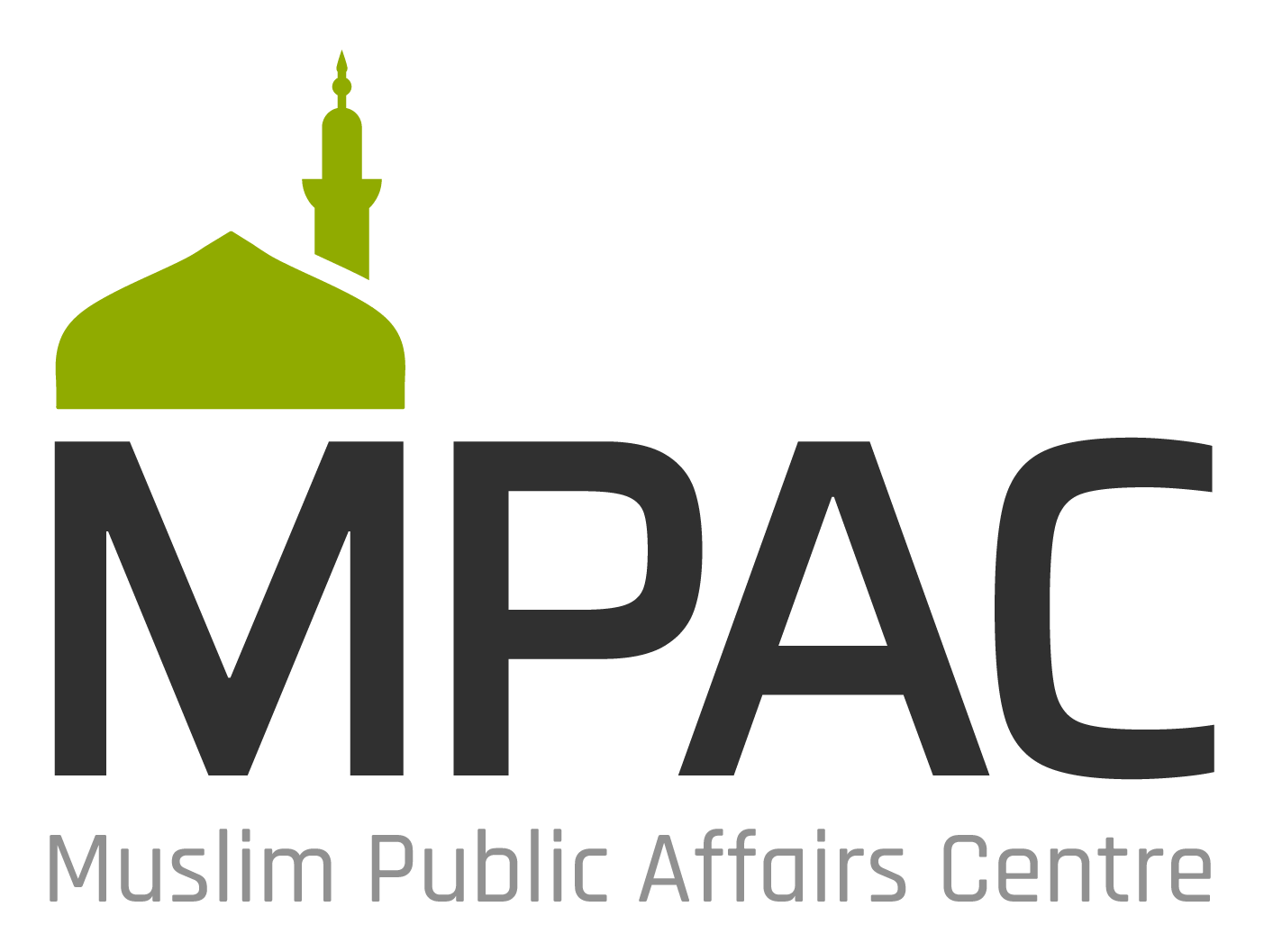

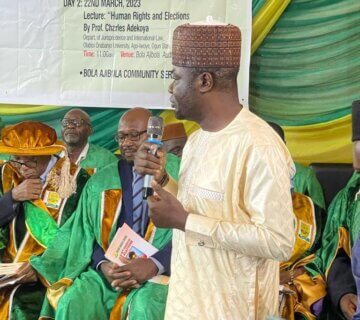
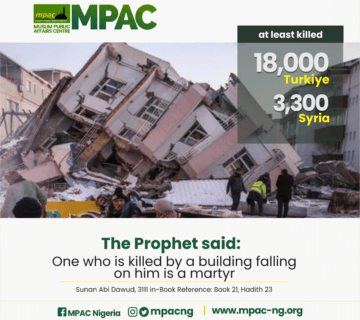
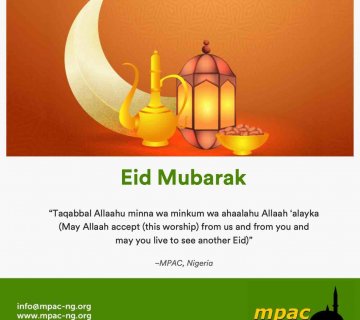
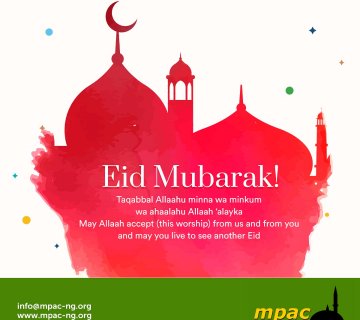
No comment